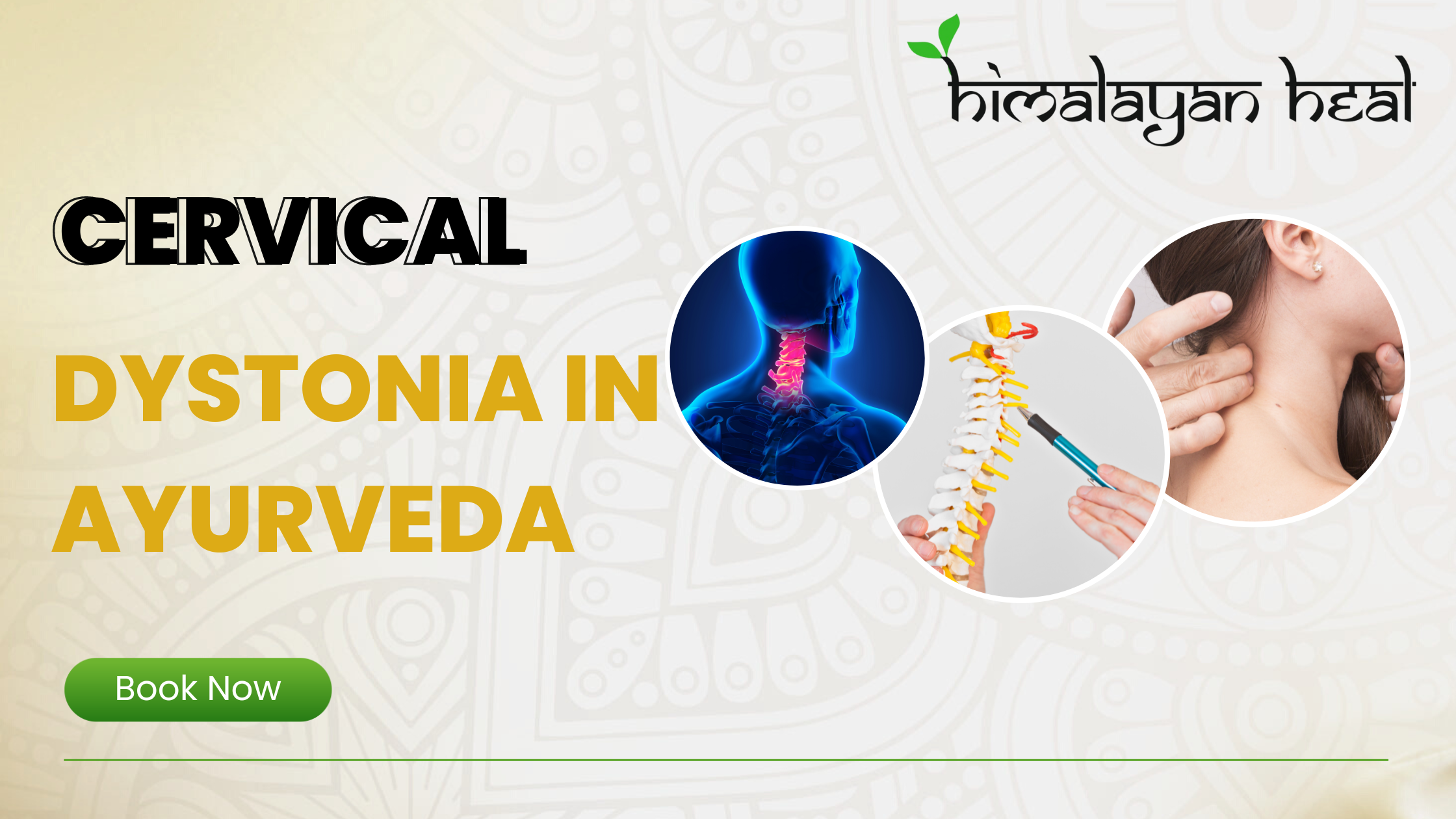Cervical Dystonia is a chronic neurological condition that affects the muscles in the neck, causing them to contract involuntarily. This can result in painful spasms, twisting and repetitive movements of the head and neck. While there is no cure for cervical dystonia, various treatments and therapies can help manage its symptoms.
Ayurveda, an ancient system of Indian medicine, offers a holistic approach to health and wellness. It considers cervical dystonia as a result of an imbalance in the three doshas (bodily energies) – vata, pitta and kapha. Ayurvedic treatments for cervical dystonia aim to restore this balance and relieve the symptoms.
Here are some Ayurvedic remedies for cervical dystonia:
- Herbal remedies: Ayurveda uses various herbs to treat cervical dystonia, such as Shankhapushpi, Brahmi, Ashwagandha and Shankhapushpi. These herbs help in reducing muscle spasms and promoting relaxation.
- Panchakarma therapy: Panchakarma is a form of Ayurvedic therapy that involves five different purification procedures to cleanse the body and restore balance. It is commonly used to treat various health conditions, including chronic stress, inflammation, and digestive problems. In the case of Dystonia, which is a movement disorder characterized by muscle contractions and spasms, Panchakarma can be used as a complementary therapy to relieve symptoms. Panchakarma therapies such as herbal oil massages, steam therapy, and purgation can help relax muscles, reduce inflammation, and improve circulation.
- Massage therapy: Massage therapy with Ayurvedic oils can help relieve muscle tension and spasms, promoting relaxation and reducing pain.
- Yoga and meditation: Ayurveda encourage the practice of yoga and meditation to promote mental and physical well-being. Certain yoga poses and pranayama (breathing exercises) can help reduce the symptoms of cervical dystonia.
In conclusion, Ayurveda offers a holistic approach to treating cervical dystonia by addressing the root cause of the condition and restoring the balance of the three doshas. It is always advisable to consult an Ayurvedic practitioner before starting any Ayurvedic treatment.
It’s important to note that Ayurvedic remedies should be used only under the guidance of a licensed practitioner, as some remedies may interact with conventional medications or have side effects. Additionally, it’s crucial to seek the advice of a qualified healthcare provider before using any complementary or alternative therapies, as they may not be appropriate or effective for everyone.
Frequently Asked Questions (FAQs) about Cervical Dystonia
- What is cervical dystonia?
- Cervical dystonia, also known as spasmodic torticollis, is a neurological movement disorder that causes abnormal muscle contractions in the neck.
- What are the symptoms of cervical dystonia?
- Symptoms of cervical dystonia include neck pain, stiffness, and twisting movements of the head that are involuntary and often painful.
- What causes cervical dystonia?
- The exact cause of cervical dystonia is not known, but it is believed to be related to a combination of genetic and environmental factors.
- How is cervical dystonia diagnosed?
- Cervical dystonia is diagnosed through a physical examination and medical history, along with imaging tests such as MRI and CT scans.
- What are the treatment options for cervical dystonia?
- Treatment options for cervical dystonia include medications, Botulinum toxin injections, physical therapy, and surgery.
- Can cervical dystonia be cured?
- Ayurvedic and Panchkarma treatments can help relieve symptoms and improve quality of life.
- Is cervical dystonia a common condition?
- Cervical dystonia is not a common condition, affecting only a small percentage of the population.
- Can cervical dystonia be inherited?
- There is a genetic component to cervical dystonia, and it can be inherited in some cases.
- Can cervical dystonia cause permanent damage?
- In severe cases, cervical dystonia can cause long-term neck pain and disability. However, with proper treatment, the condition can often be managed and controlled.
Call Now: +91-84371-62633

